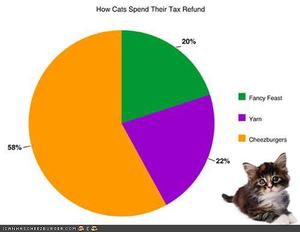Explore Small Business Finance Topics
Discover our most popular topics for Canadian solopreneurs and small business owners. From income tax and GST/HST to QuickBooks tutorials and managing your business finances, these guides are designed to help you move from financial uncertainty to financial confidence.
Click on any topic and scroll down to see related articles.
📑Canadian Income Tax
Guidance on filing and planning your Canadian taxes, from T1 and T2 returns to instalments
📊Managing Business Finances
From cash flow to pricing and metrics — learn to manage your business finances with confidence.
🏢 Canadian Business Structure
Should you incorporate? Stay informed on sole proprietorships, corporations, and registrations.
💰 GST/HST & QST
Understand how to register, file, and maximize input tax credits while avoiding common mistakes.
🧾 Guides and Tutorials
Practical accounting processes like reconciliations, journal entries, and reporting.
📝 Deductions & Expenses
Learn which expenses are CRA deductible and how to track them for maximum tax savings.
Quebec Taxes & Business
QST, Revenu Québec filings, Quebec payroll, and provincial rules every entrepreneur should know.
👤 Paying Yourself
Salary vs dividends, management fees, and how to pay yourself from your corporation or small business.
💻 QuickBooks Online & Tools
Tutorials, guides and time-saving tips for using QuickBooks Online effectively.
🏦 Money & Personal Finance
Personal finance strategies for entrepreneurs, from RRSPs to saving for taxes.

9 Tax Facts about Charitable Donations for Individuals and Small Business Owners
Not all contributions or fundraising activities qualify as charitable donations for tax purposes. The Canada Revenue Agency (CRA) sets specific criteria for what is considered an eligible charitable donation and what documentation is required to claim a tax credit.
This article outlines key tax rules related to charitable donations, including what qualifies, who can issue official donation receipts, how donations are claimed by individuals and business owners, and common misconceptions.

What Happens When You Contribute Excess Amounts to your RRSP
Being able to contribute to an RRSP is one of the great tax saving strategies available to all Individual Canadian Taxpayers who generate “earned income” which is essentially income earned from employment (salaries) or self employment. It is extremely important to know that there are unfortunately limits to how much you can contribute and Revenue Canada (CRA) actually imposes penalties on overcontributions to your RRSP.
Note that passive income like dividends and interest is ineligible and does not factor into the calculation for how much you can contribute to an RRSP.

Tax Deductions vs Tax Credits and 5 Tax Deductions to Help Reduce Your Tax Bill
Most taxpayers use the terms tax deduction and tax credit interchangeably. Since they are not accountants, this is perfectly fine unless you are particular about precision and strive for a greater understanding of tax. And while there a numerous technicalities and jargon in tax that are better left to tax professionals, this particular distinction is fairly straightforward , can useful to understand and might even save you some tax.
So, what is the difference? A tax deduction is a reduction of your net income on which your taxes payable are based, while a tax credit is a direct reduction of your taxes payable. These might sound very similar, but their impact on how much tax you pay is different. Since there are different tax brackets, a tax deduction results in a reduction of your taxes payable effectively at the highest tax bracket to which your income applies, while a tax credit (for simplicity we are only talking about the federal portion and not provincial) will only reduce your taxes by 15%, which corresponds to the lowest tax bracket. While this can get significantly more complicated, suffice it to say, if your income exceeds approximately $50k, tax deductions have a higher value i.e. they reduce your taxes by a greater amount than a tax credit since part of the $50k will be taxed based on a higher tax bracket.

How to Change Your Personal Tax Return After It Has Been Filed
Revenue Canada recommends that you should wait to receive your notice of assessment (NOA) before filing an amended return. Once you receive your NOA, you should review it to verify if the error or omission has been reflected on the assessment. If not, then you would proceed with submitting the amendment. Luckily, you are not required to redo your entire return; rather you just need to submit details regarding the specific changes. There are several ways in which you can file an amended return.

What is a notice of assessment and How to Handle a request for information
After you file your income tax return Revenue Canada (CRA) and Revenue Quebec (RQ) will send you an acknowledgement (somewhat like a report card) that the return has been received and a detailed breakdown of the tax return that was filed including any discrepancies. It also provides some information pertaining to future years such as limits and carryforwards. The NOA is also referred to as an “avis de cotisation” if your preferred language is French or when you receive one from RQ. Some of the information that can be found on a notice of assessment includes:

5 Income Tax Tips from the Trenches
It is the time of year when many accountants and tax preparers live, breathe, eat and sleep taxes (leaving very little time to write about them!). And while much of it is routine, there are numerous issues that arise, the treatment for which is not immediately apparent and can actually be useful for you to know.

Two (and a Half) Options for Claiming Employee Home Office Expenses in 2020
As numerous employees shifted from their offices to their homes, Revenue Canada (CRA) and accountants were deluged with questions about how they could claim home office expenses. To stave off the complaints and questions, CRA decided to introduce a simplified method of claiming a tax deduction. It should be noted that employees have always been allowed to claim expenses relating to their employment as long as their employers completed and signed form T2200. The information from this form would then be entered on Schedule T777. The issue for this year is that filling out the form and completing the schedule is a somewhat tedious process and does not fit all employees’ who worked from home as a result of Covid imposed restrictions.

Why Every Canadian Should File a Personal Tax Return
A friend of mine has been in a nightmare scenario with CRA. She hadn’t filed her tax return in a few years mostly because she had one T4, figured that she didn’t owe any tax and was simply procrastinating on an unenjoyable task. In 2020 she receive a notice of assessment from CRA indicating that she owed several thousand dollars, with no additional details except that they had added $25k to her actual income earned. Over the past year, she has called them numerous times to get an explanation and each time she is told that the file is being escalated and someone will get back to her. To date nobody has gotten back to her. To make matters worse, CRA passed this information i.e. additional income on to Revenue Quebec (without any details) which resulted in a significant assessment from them. She still has no idea why she was assessed this amount and is now in the unenviable position of calling both revenue agencies on a weekly basis to manage the situation.

Understanding Payroll Deductions: Personal Income Tax Rates, CPP/QPP, EI and Basic Exemption
The automation of the tax preparation and filing process has been a boon to individuals and tax preparers alike. Gone are the days of struggling to find the right box on the return, adding everything up 5 times and still getting different results, and hoping that the CRA can read your chicken scrawl. Present day tax software not only guides you through every step of the process, it also helps to optimize your allocations thereby reducing your taxes payable. There is however at least one downside to automation: Since we are more removed from the actual calculations, our understanding of our tax situation is somewhat diminished. We have an idea of what we expect to pay, which we can see every week on our paycheques (or for self employed individuals, the breathtaking moment when we see the final result on our tax return), but often we are not really sure how these amounts are derived. Below is a discussion of the tax rates, deductions and maximums to improve our comprehension of this somewhat complex topic:
